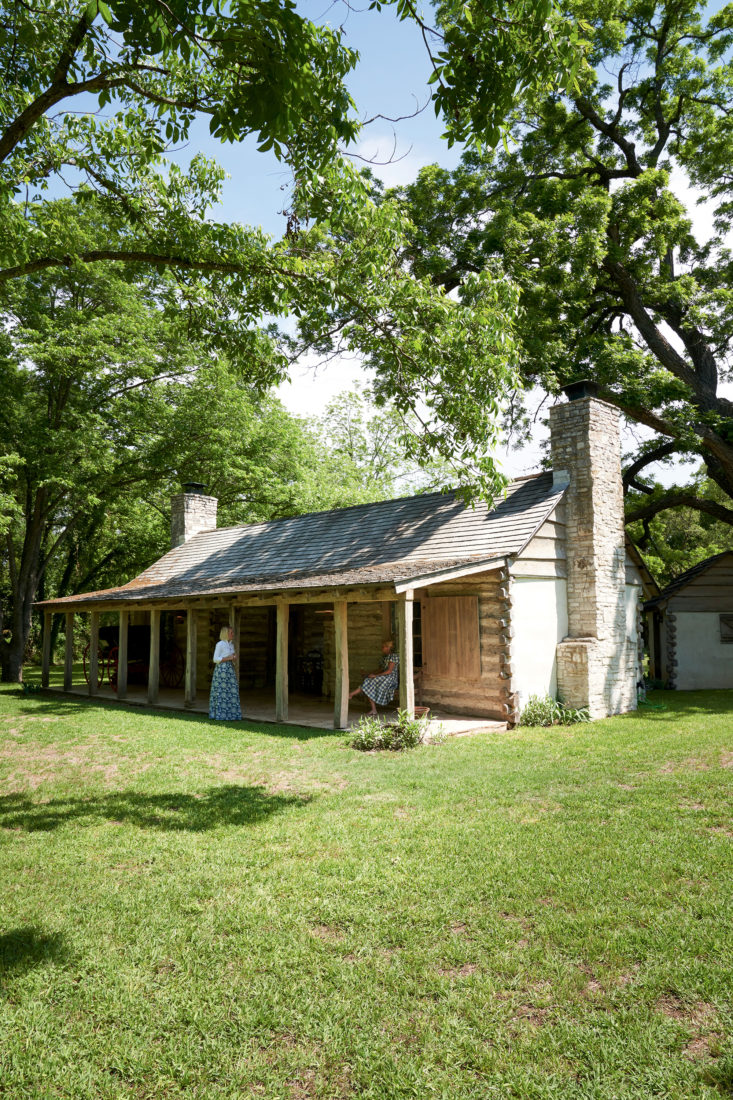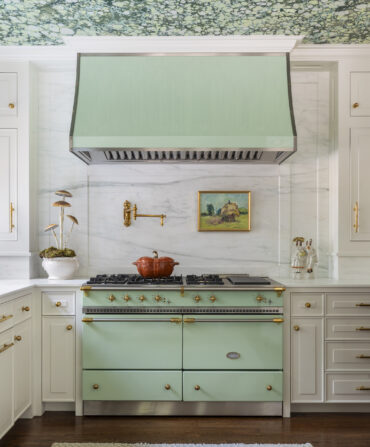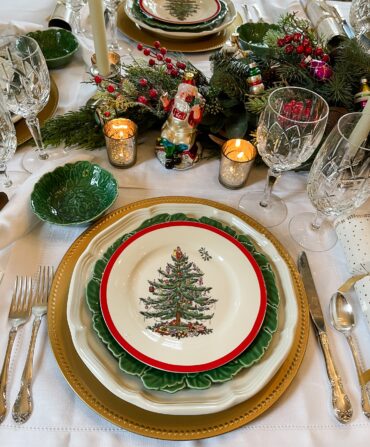When Alice Welder was a little girl visiting family in Fredericksburg, Texas, she would look out the car window and widen her eyes to take in the sight of old German pioneer houses. One homesite that sat along a cypress-lined creek enchanted her the most—even before she heard the family stories about the place. “That spot has always been magical,” Welder says, “and I think even then I dreamed it would be part of my life forever.”
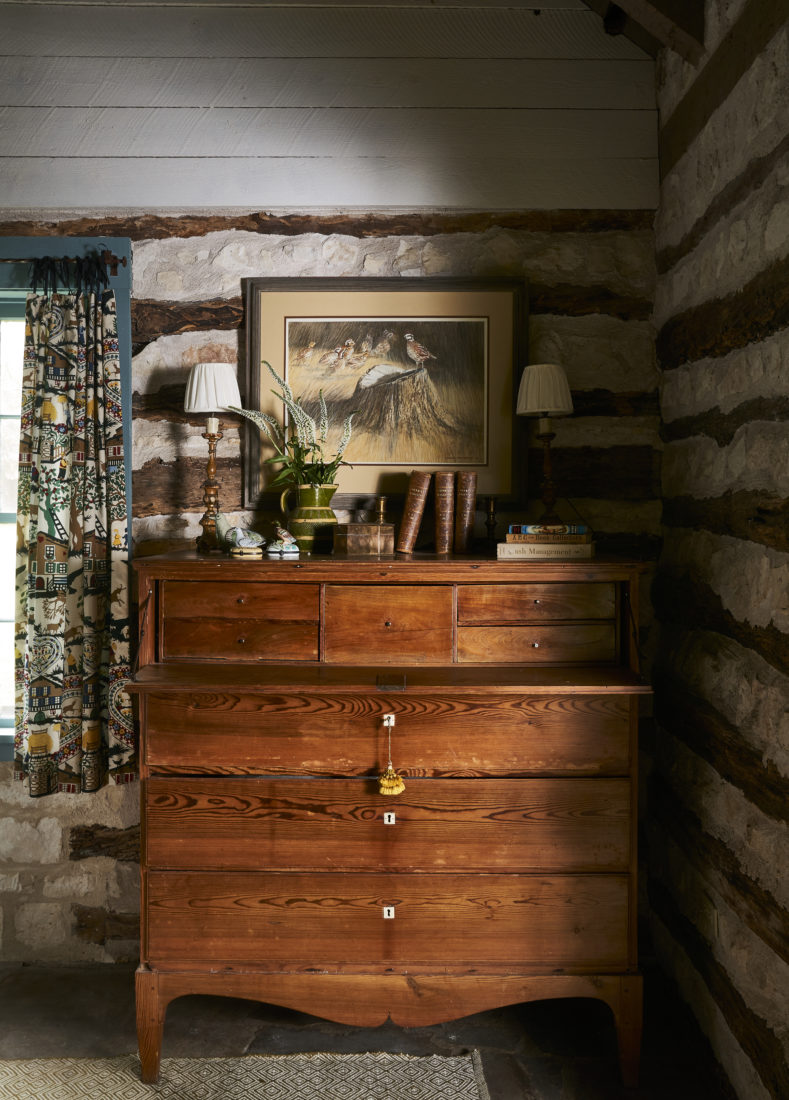
In the early 1900s, Welder’s own relative Albert Keidel planted those cypress trees when he restored the property and acted as a caretaker of other historic sites in the area—the region is rich in nineteenth-century German American architecture. “The story goes that in the 1930s, Albert heard how the Rockefellers were spending oceans of money at Colonial Williamsburg in Virginia,” Welder says. “He looked around Fredericksburg and said, ‘We don’t have a lot of money, but we do have all these old wonderful buildings.’” With that, he helped start the Hill Country’s preservation movement. A little further down the family tree, Welder’s grandparents shaped nearby Luckenbach, Texas, a community made famous by a Waylon Jennings song, into what is today a two-stepping-back-in-time music destination. Welder’s grandfather John Russell “Hondo” Crouch was the mayor, and his wife, Helen, known as “Schatzie,” protected and restored pioneer artifacts such as pine tables and even entire houses. So Welder isn’t exaggerating when she says, “Loving old buildings is ingrained in my soul.”
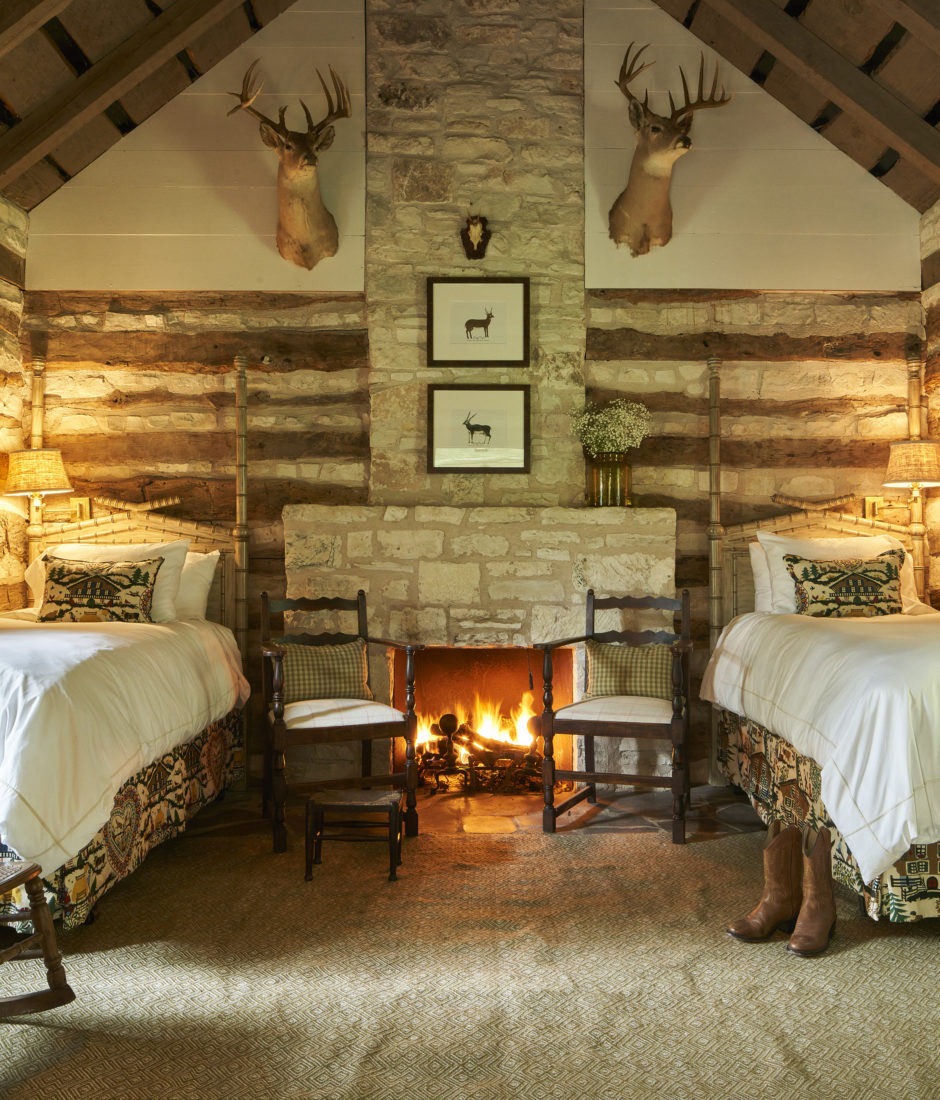
By the time Welder and her husband, Clark, were raising three daughters, she craved a slowdown from life in San Antonio. She showed him the cypress creek and the dreamy property in the heart of Fredericksburg. “I said, ‘Clark, we’re moving.’ The current owner knew I was Schatzie’s granddaughter, and she held my hand and gave me her blessing to take care of the property.”
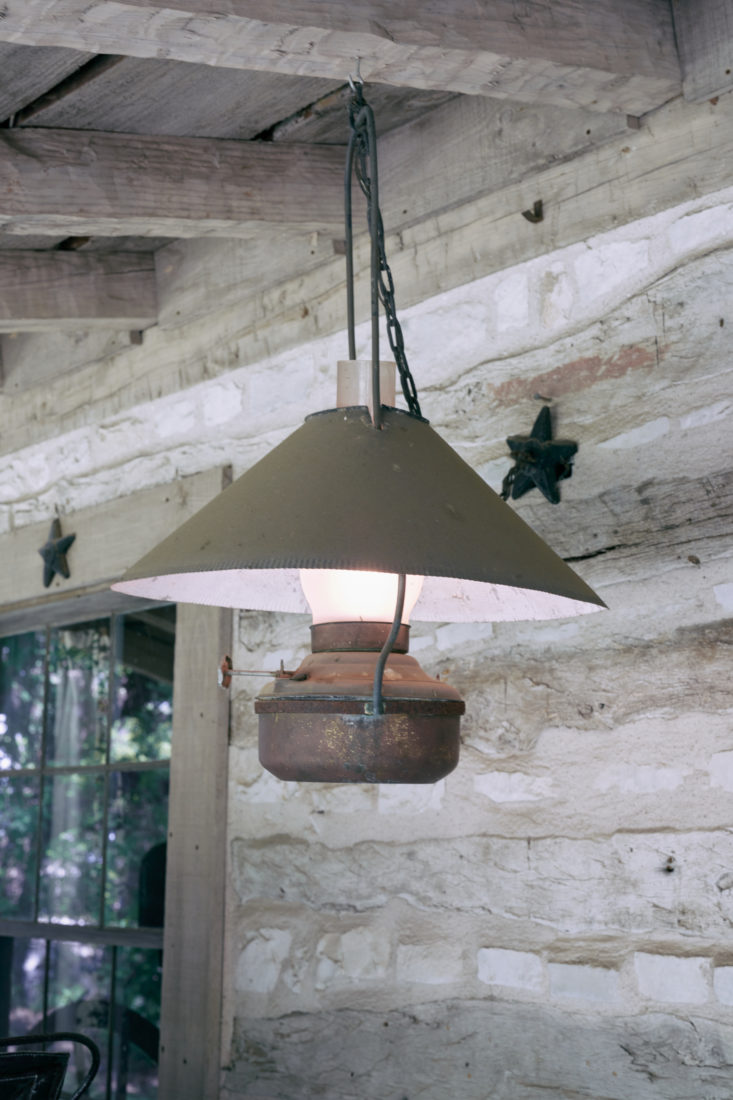
The family settled right into the main restored home, but a cobwebby little cabin just steps away was a bit of a mystery. A breezeway connected its two living structures—a traditional pioneer dogtrot, built so that people, pets, and precious cool air could pass through. Welder learned that years before, another owner had discovered the 1852 cabin neglected nearby and moved it log by log. That family rebuilt its walls, connecting porch, and two anchoring stone chimneys atop a floor of river rocks. But now it gathered dust.
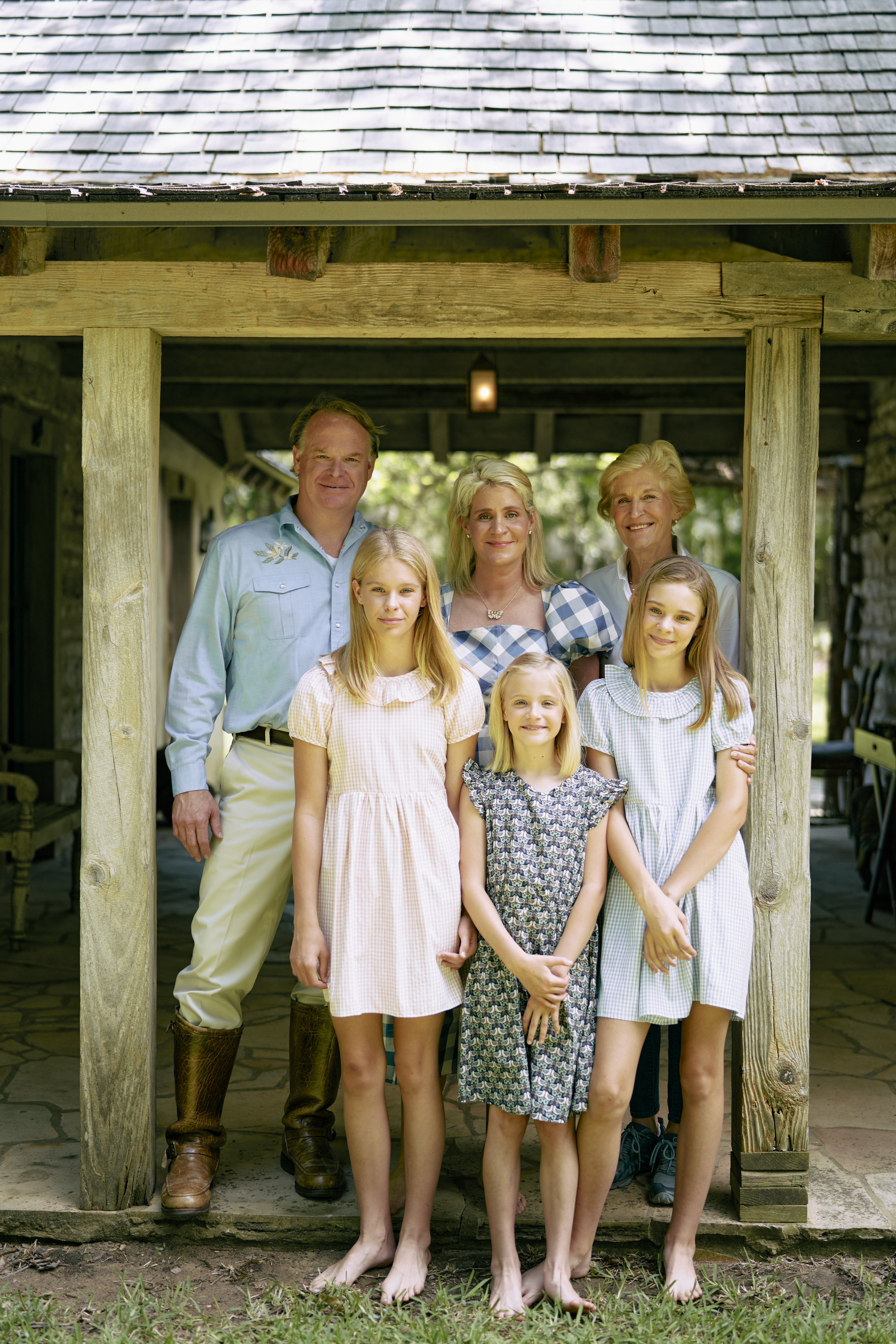
Welder wondered if the dogtrot could become a cozy guesthouse, and she called a friend, the interior designer Melissa Morgan of San Antonio’s M Interiors. “What helps any old place to not feel spidery and dusty is to use it,” Morgan says. “Having people over, cleaning up, and just living in a house is the way to keep it alive.”
Morgan and Welder agreed to preserve as much of the cabin’s character as possible. First, they gave the place a rafters-to-rock-floor deep clean, and then rewired the electrical. That was just about the extent of the renovation. “We repainted the ceilings because it smelled a little musty,” Welder says, “but we kept the original German blue painted trim.”
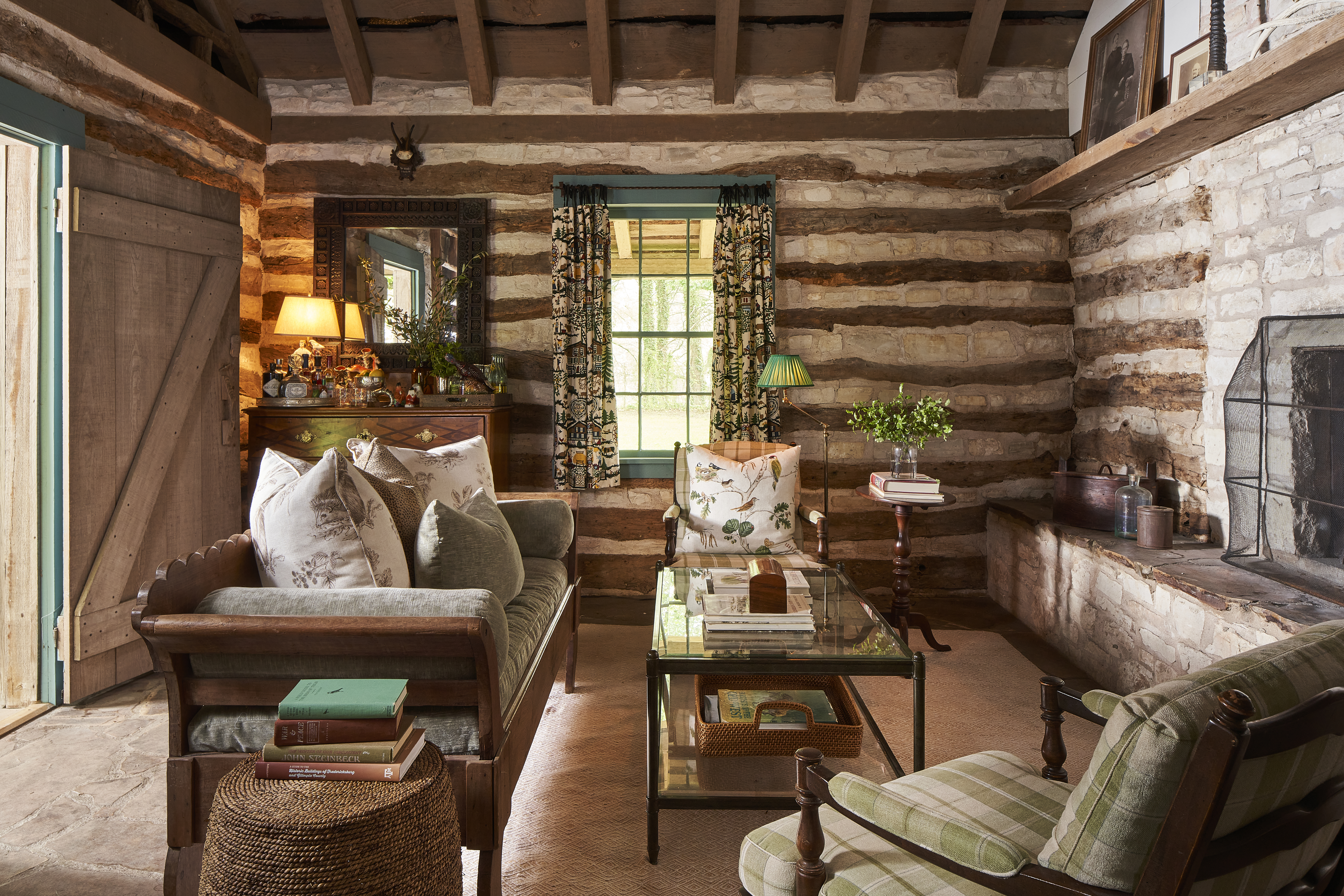
Then, the fun part—layering in decades of family heirlooms and treasures from Texas antique stores. In the bedroom on one side of the cabin, a rocking chair where Hondo Crouch once creaked on his front porch sits alongside two twin beds. On the other side of the breezeway, just off a second bedroom, an inviting common space centers on a massive fireplace. A German chest serves as a bar, decked out with family silver and nineteenth-century Staffordshire hunt cups shaped like dogs. Welder stacked books on Texas history beside the wooden couch, which has been passed down through generations.
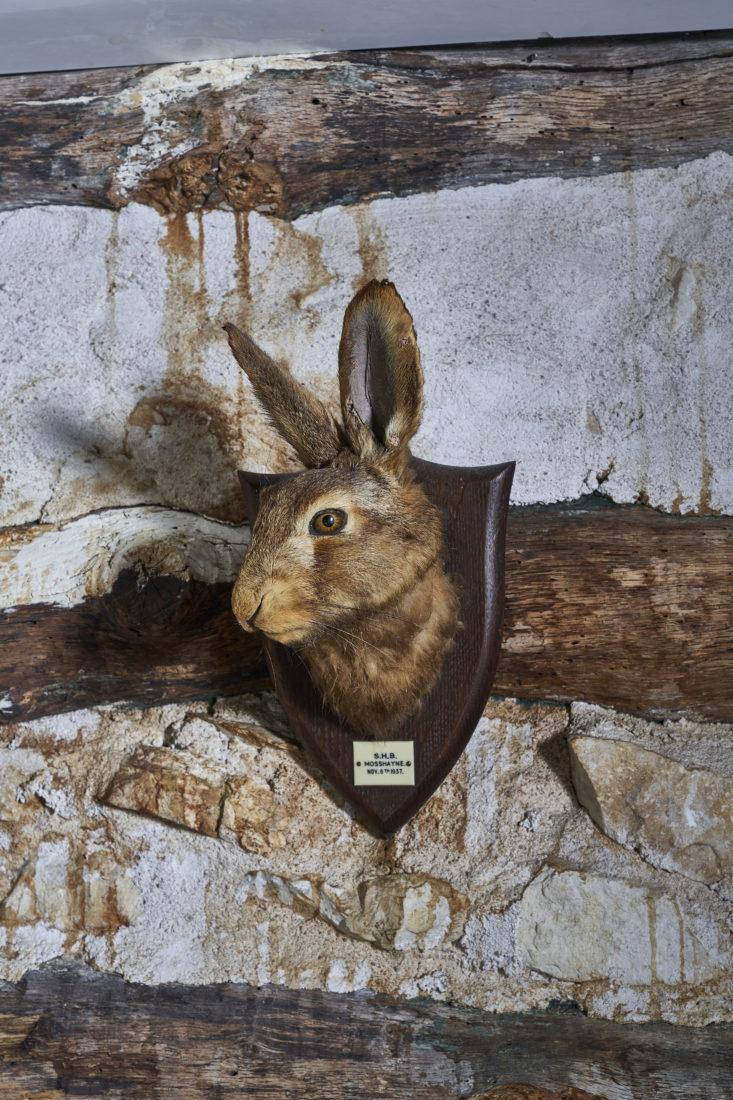
On pillows and curtains across the cabin, Morgan chose the Pierre Frey fabric Montana with its charming woodland scene of pine trees and deer. Because there was so little to modernize on the structure itself, Morgan and Welder decided to splurge on sleeping arrangements, with handmade mattresses from Cantwell, a century-old family-run store in San Antonio. “People might see a log cabin and think they’re going to be sleeping on a cot, or something like a campsite,” Morgan says. “No. We wanted the most gracious sleeping setup possible—crisp sheets, thick pillows, and unbelievably comfortable beds.”
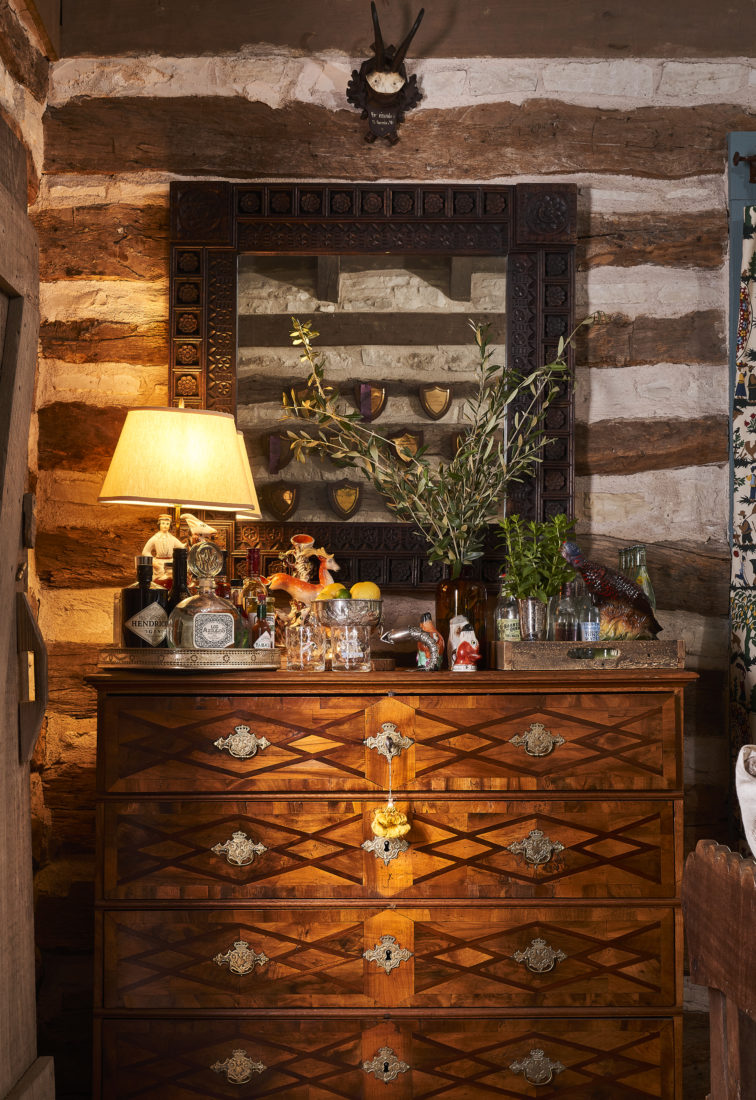
The trick might have worked too well. “People come and they don’t want to leave,” Welder says and smiles. Every Thanksgiving, the family serves a spread in the breezeway and guests stay for days. Musicians who play in Fredericksburg and Luckenbach regularly bunk in the cabin to write or just soak in the textures of history. Clark puts it best: “You can’t cheat on patina.”
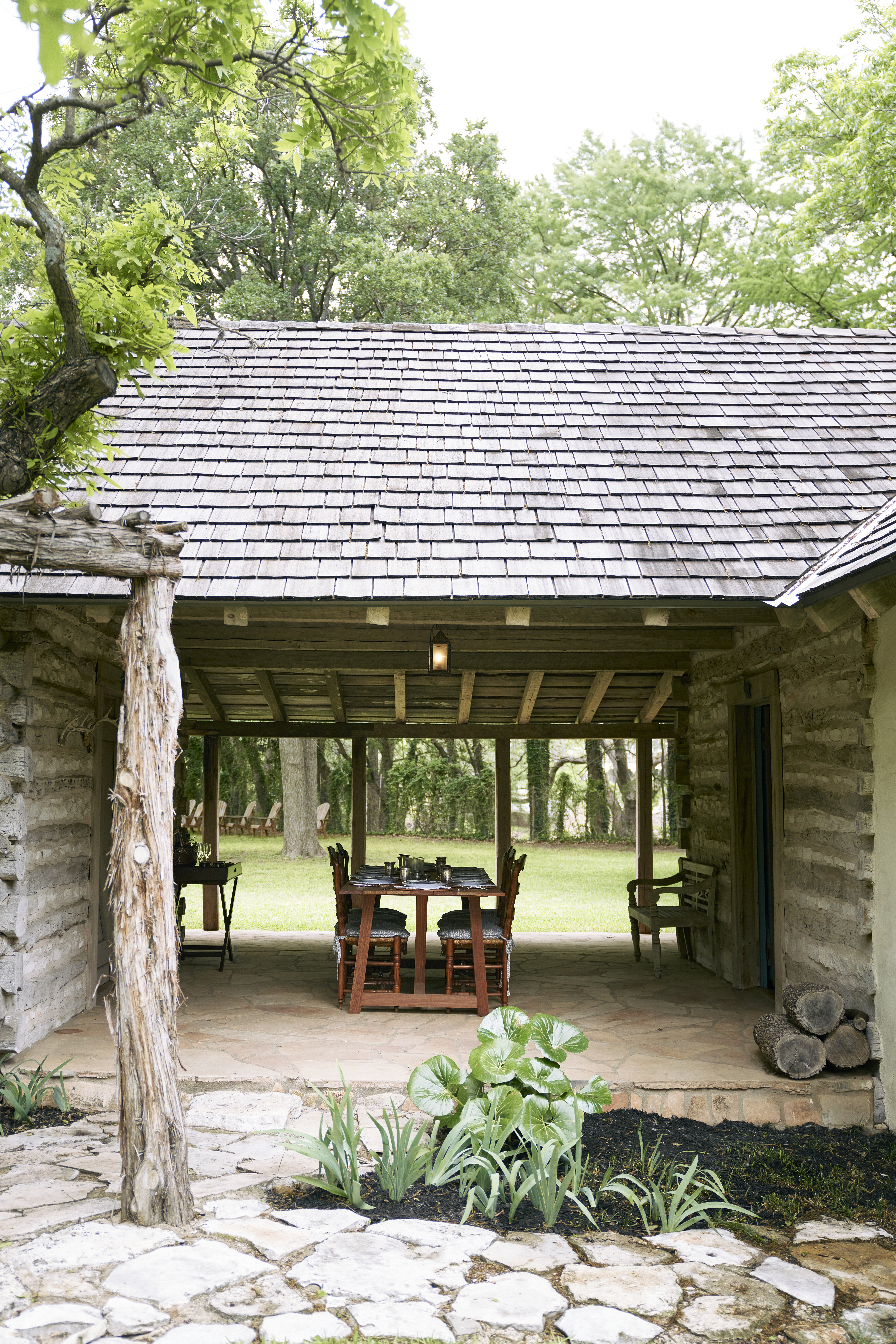
Each time new visitors arrive, Welder sets out pastries from the nearby restaurant Vaudeville, plops wildflowers into vases, and freshens the bar with Topo Chico, tequila, and her family’s own Luckenbach whiskey. “There’s no TV or telephone,” she says, and then, perhaps accidentally, or perhaps because it’s part of her very fiber, she echoes words that Waylon Jennings sang: “Here, we get back to the basics.”


